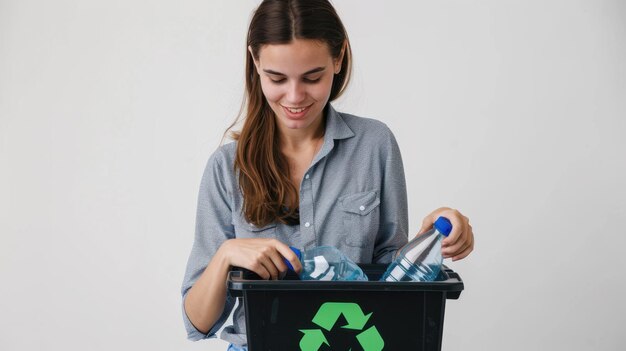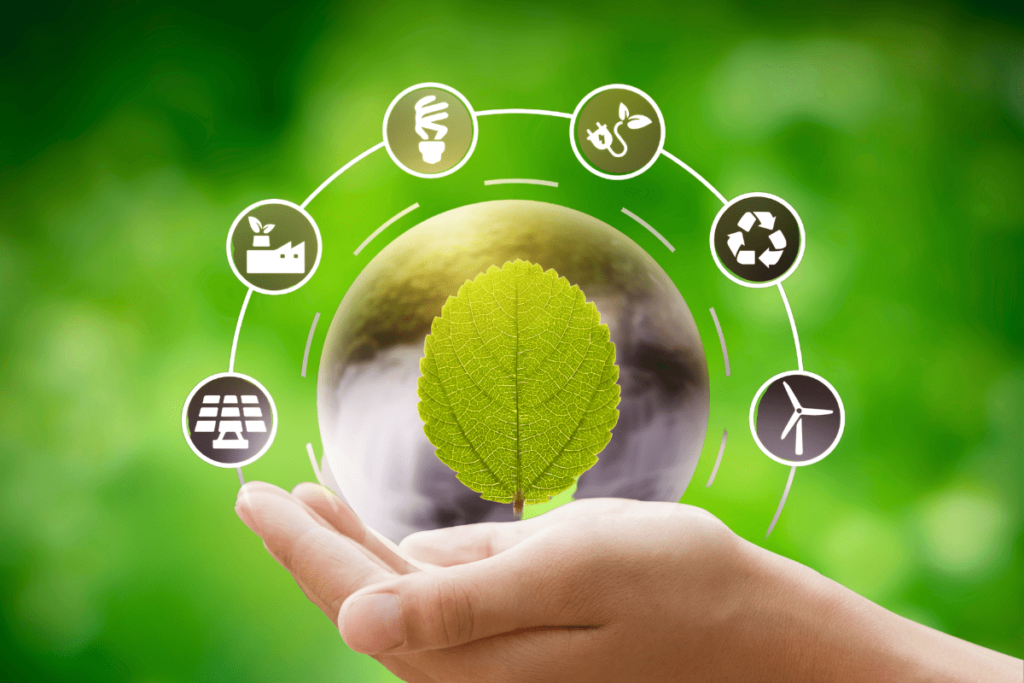Living an eco-friendly lifestyle doesn’t have to be overwhelming or expensive. In fact, you don’t need to go zero-waste overnight or install solar panels to make a difference. The truth is, small, mindful changes in your daily habits can have a powerful impact—not just on the planet, but on your wallet and well-being too.
If you’ve been wanting to live more sustainably but didn’t know where to start, don’t worry. This guide is full of easy, actionable tips that anyone can adopt—no matter your lifestyle or budget.
Let’s explore how little steps can lead to big change.
🌱 Why Eco-Friendly Living Matters
Our planet is facing serious challenges—climate change, pollution, deforestation, and plastic waste, just to name a few. But the good news is, every action counts.
When you live more sustainably, you:
- Reduce your carbon footprint
- Help conserve natural resources
- Cut down on waste
- Save money
- Create a healthier home environment
It’s not about being perfect—it’s about being intentional and making better choices when you can.
🛍️ 1. Say Goodbye to Single-Use Plastics
One of the easiest ways to reduce waste is by cutting down on single-use plastics. Think about how often you grab a plastic straw, bag, or bottle—those items add up fast and take hundreds of years to break down.
Easy swaps to try:
- Use reusable shopping bags and produce bags
- Carry a stainless steel water bottle
- Keep reusable utensils or straws in your bag or car
- Switch to beeswax wraps or containers instead of plastic wrap
Once you get used to it, you’ll wonder how you ever lived without these!
☕ 2. Make Coffee (and Life) More Sustainable
Love your morning coffee? You can still enjoy it—just a little greener.
Try this:
- Use a French press or reusable coffee filter instead of pods
- Skip the disposable cup and bring your own travel mug
- Buy fair-trade, organic coffee when possible
- Compost your coffee grounds (they’re great for plants!)
Small changes in your morning ritual can reduce waste and support more ethical practices.
🌿 3. Rethink Your Home Cleaning Routine

Many commercial cleaning products contain harsh chemicals that harm both the environment and your health. The good news is, eco-friendly cleaning is super simple—and often cheaper.
Go green with:
- White vinegar + baking soda (great all-purpose combo)
- Refillable cleaning bottles
- Reusable cloths or old t-shirts instead of paper towels
- Natural essential oils for fresh scent (like lemon or tea tree)
Your home will be clean and chemical-free.
🚿 4. Conserve Water Without Even Noticing
Water is precious, and conserving it is easier than you might think.
Water-saving tips:
- Turn off the tap while brushing your teeth
- Fix any leaky faucets or toilets
- Take shorter showers (even saving 2 minutes helps!)
- Use a broom instead of a hose for outdoor cleaning
Bonus: Reducing water use also lowers your utility bill.
👕 5. Choose Clothes with Care
Fast fashion is one of the biggest contributors to environmental damage. But you don’t have to stop buying clothes—just shop more thoughtfully.
Try this approach:
- Buy less, choose well
- Support sustainable or secondhand brands
- Host clothing swaps with friends
- Repair instead of replace when possible
A smaller, more intentional wardrobe reduces waste and clutter—and often boosts your personal style, too.
🍽️ 6. Eat With the Planet in Mind
The way we eat plays a huge role in our environmental impact. You don’t need to go vegan to make a difference—just making a few tweaks can go a long way.
Ideas to get started:
- Eat more plant-based meals throughout the week
- Buy local and seasonal produce when you can
- Reduce food waste by planning meals and using leftovers
- Compost food scraps instead of tossing them
It’s better for the planet and your health.
🔌 7. Use Less Energy at Home

Energy conservation is great for the environment—and your wallet.
Simple energy-saving habits:
- Unplug devices when not in use
- Switch to LED light bulbs
- Use energy-efficient appliances
- Let sunlight heat and light your home when possible
- Wash clothes in cold water and air-dry when you can
Small tweaks add up to big savings over time.
📦 8. Shop Smarter and Waste Less
The products we buy, how we buy them, and how we dispose of them all matter.
Smart shopping tips:
- Buy in bulk to reduce packaging
- Choose products with minimal or recyclable packaging
- Support companies that use ethical and sustainable practices
- Think before buying: Do I really need this?
Intentional consumption leads to less waste, more savings, and fewer regrets.
♻️ 9. Recycle (the Right Way)

Recycling is important—but only if done correctly. Putting the wrong items in your bin can contaminate the system and send recyclable materials to the landfill.
A few recycling reminders:
- Rinse containers before recycling
- Learn your local recycling rules (they vary!)
- Don’t “wish-cycle” (putting non-recyclables in the bin and hoping they get recycled)
When in doubt, look it up—it only takes a minute.
💡 10. Talk About It and Inspire Others
Your eco-friendly habits don’t have to stay private. Share what you’re learning with friends, family, or on social media. Lead by example, and encourage others to join you.
It’s not about being preachy—it’s about creating a ripple effect. When others see how easy and impactful small changes can be, they’re more likely to join in.
🌟 Final Thoughts
Living an eco-friendly life doesn’t mean doing everything perfectly. It means being aware, making better choices when you can, and understanding that even small actions add up.
You don’t need to save the planet overnight. Just start with one or two changes that feel doable—and build from there.
Whether it’s bringing your own bag, eating more veggies, or unplugging a charger, every step you take makes a difference.
And the best part? A more sustainable lifestyle often leads to a simpler, healthier, and more intentional way of living—not just for the planet, but for you.

